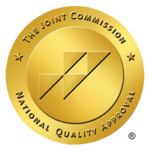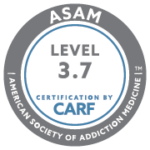Massage therapy has become increasingly recognized as a valuable tool in the journey of addiction recovery. As individuals navigate the challenges of overcoming addiction, massage therapy offers a unique approach to healing both the mind and body. With its ability to reduce stress, alleviate physical discomfort, and promote relaxation, massage therapy can play a crucial role in recovery.
Learn how our addiction treatment programs can support our clients toward lasting sobriety. We can help you or a loved one in need of professional support.

Massage therapy for addiction recovery is a holistic approach that involves the use of touch and pressure on the body to promote healing and reduce stress. It can be beneficial for individuals who struggle with addiction, as it addresses both the physical and psychological aspects of recovery.
One of the main benefits of massage therapy for addiction recovery is its ability to reduce stress and anxiety. Addiction can be a complex and challenging journey, which can often lead to high levels of stress and tension in the body. Massage therapy helps to release tension and promote relaxation, which can be incredibly beneficial for those in recovery.
In addition, massage therapy also helps to improve circulation and stimulate the lymphatic system, which aids in detoxification. This is particularly important for individuals who are going through withdrawal symptoms in our medical detox program. By increasing blood flow and aiding in detoxification, massage therapy can help alleviate some of the unpleasant physical symptoms associated with addiction recovery.
Furthermore, massage therapy has been found to increase feelings of well-being and self-awareness. For those in recovery, this can be extremely beneficial as it promotes a sense of connection with one’s own body. This awareness can help individuals recognize when they are feeling triggered or stressed and take appropriate measures to cope with these feelings without turning to substances.
Massage therapy is a valuable tool for those seeking addiction recovery as it addresses both physical and mental wellness. It can aid in reducing stress, promoting relaxation, aiding in detoxification, and increasing self-awareness. If you or someone you know is struggling with addiction, our substance abuse and mental health treatments provide a comprehensive approach to healing.
Massage therapy for addiction recovery can be a beneficial treatment for addiction in several ways. Firstly, the physical manipulation of muscles and soft tissues can help to alleviate withdrawal symptoms such as muscle tension, aches, and pains. This can provide relief and comfort during the often uncomfortable process of detoxification.
Additionally, massage therapy has been shown to reduce stress and promote relaxation. Addiction is often linked to high levels of stress and anxiety, and massage therapy can help to reduce these feelings by releasing feel-good hormones such as endorphins and oxytocin. This can create a sense of well-being and calmness, which can be especially helpful in managing the emotional ups and downs that come with addiction recovery.
Massage therapy for addiction recovery also promotes better sleep, which is crucial for those in recovery. Lack of sleep is a common side effect of addiction withdrawal and can exacerbate other symptoms such as anxiety and depression. Massage helps to relax the body and mind, making it easier for individuals to fall asleep and stay asleep.
Moreover, massage therapy can improve overall physical health by increasing blood circulation and boosting the immune system. Drug abuse takes a toll on the body’s systems, weakening its ability to fight off illness. By improving circulation, massage therapy helps deliver oxygen-rich blood throughout the body, aiding in tissue repair and boosting immunity.
Furthermore, receiving massage therapy for addiction recovery provides individuals with an outlet for self-care. Many people struggling with addiction neglect their bodies due to their substance use disorder. Massage therapy allows them to reconnect with their bodies positively while promoting self-care practices that they can continue after treatment.
In conclusion, massage therapy is an effective treatment for addiction because it helps alleviate physical symptoms of withdrawal, reduces stress and anxiety, promotes better sleep patterns, improves overall physical health, and encourages self-care practices. Incorporating massage therapy into our partial hospitalization program (PHP) can have numerous benefits for individuals on their journey toward recovery.
Massage therapy for addiction recovery is a holistic approach to addiction treatment that focuses on the mind, body, and spirit. It involves using targeted massage techniques to release tension, reduce stress, and promote relaxation. This approach recognizes that addiction is not just a physical issue, but also involves emotional and spiritual components.
When an individual is struggling with addiction, their body may be in a constant state of fight or flight, leading to increased tension and stress. This can manifest as physical symptoms such as headaches, muscle pain, and difficulty sleeping. Massage therapy helps to alleviate these symptoms by promoting the release of endorphins – the body’s natural “feel-good” chemicals.
Additionally, massage therapy for addiction recovery can help individuals address the underlying emotional issues that may be contributing to their addiction. By creating a safe and nurturing environment, massage therapists can facilitate healing on an emotional level. This can include addressing past traumas or negative thought patterns that may be fueling addictive behaviors.
Spirituality is another important aspect of addiction recovery that is addressed through massage therapy. The practice of mindfulness and being present at the moment can assist individuals in connecting with their higher selves and finding inner peace. Massage therapists can incorporate guided meditation or breathing exercises into their sessions to promote this type of spiritual connection.
Incorporating massage therapy into an addiction treatment plan can have numerous benefits for individuals in recovery. It has been shown to reduce anxiety and depression levels, improve sleep quality, decrease cravings for drugs or alcohol, and aid in overall stress management.
Furthermore, regular massage sessions provide individuals with a healthy outlet for self-care. Many people struggling with addiction neglect their physical well-being due to addictive behaviors; incorporating massage into their routine promotes self-love and positive coping mechanisms.
Massage therapy offers a holistic approach to addiction treatment by addressing the physical, emotional, and spiritual aspects of recovery. Its benefits extend beyond just relaxation – it can aid in managing symptoms related to addiction withdrawal while promoting overall wellness and self-care. As part of our experiential and evidence-based therapies, massage therapy can contribute to the long-term success of individuals in their journey toward recovery.
Massage therapy for addiction recovery can be a powerful tool in helping individuals in recovery programs such as our alcohol detox. However, it is important to understand if this type of therapy is right for you before committing to it. Here are some factors to consider:
Physical Health: Massage therapy involves physical touch and manipulation of muscles, which may not be suitable for individuals with certain medical conditions or injuries. It is important to consult with your doctor before starting massage therapy, especially if you have any underlying health issues.
Personal Comfort: Some individuals may feel uncomfortable with the idea of being touched by a stranger during massage therapy sessions. If this is the case, it is important to communicate your concerns with the therapist and find ways to make yourself more comfortable.
Mental Health: Massage therapy for addiction recovery can also have emotional effects on individuals, as it can release built-up tension and emotions from the body. If you are struggling with mental health issues such as anxiety or depression, make sure to discuss this with your therapist beforehand.
Commitment: Like any form of treatment, massage therapy requires commitment and consistency to see results. If you are not willing or able to commit to regular sessions, then it might not be the best option for you.
Openness to Alternative Therapies: Addiction recovery often involves exploring alternative methods of healing and coping. If you are open-minded and willing to try new things, then massage therapy may be a good fit for you.
Remember that every individual has different needs and what works for one person may not work for another during addiction recovery. It is important to evaluate your circumstances and consult with a healthcare professional before deciding on incorporating massage therapy into an addiction recovery program such as our residential treatment care (RTC).
At First Steps Recovery, we understand the importance of addressing both the physical and mental aspects of addiction recovery. That’s why we offer massage therapy as part of our comprehensive treatment program.
Massage therapy for addiction recovery has been shown to have numerous benefits for those in recovery from addiction. It can help reduce stress and anxiety, which are common triggers for relapse. Massage also promotes relaxation and can improve sleep quality, which is often disrupted during the early stages of recovery.
We believe that treating the whole person is essential for successful long-term recovery. Our massage therapy program is just one of many holistic approaches we offer to support our clients in their journey toward healing and wellness.
If you or a loved one is struggling with addiction, consider incorporating massage therapy into your treatment plan at First Steps Recovery. Contact us today to learn more about our services and how we can help you on your path to recovery.

From our certified therapists and nurses to our emotional support animal "Cooper", our entire team is dedicated to the health and success of our clients throughout our program and beyond.
During individual therapy sessions, clients will interact with licensed and trained counselors to work through underlying issues that may be contributing to their drug or alcohol addiction.
Cognitive Behavioral Therapy (also known as CBT) has been clinically proven to help clients with a wide range of problems, including substance abuse.
Dialectical Behavioral Therapy (or DBT) is another common form of talk therapy that is found in many substance abuse treatment programs.
During trauma-informed therapy sessions, clients are able to talk with a specialist who accounts for their past trauma and the way it may have affected their thinking, behavior, and ability to interact with treatment.
Brainspotting is a type of alternative therapy that utilizes spots in a person's field of vision in order to help them process trauma.
Neuro Feedback is a type of noninvasive therapy that helps clients to alter the way their brain responds to certain types of stimuli.
With our treatment approach, we help you get to the deeper roots of what’s driving your addiction. Through sharing and listening, the groups become a source of motivation, accountability, and real change.
Family counseling is one of the best ways to reconnect with family members who are affected by addiction and mend the relationship between a client and their family.
Dayatra L.
Melissa B.
Bruce G.
Have questions about how our alumni program works? Let's talk.












© 2024 First Steps Recovery | Privacy Policy | All Rights Reserved.

Have questions about First Steps Recovery? We're here to help.
© Copyright 2023 • First Steps Recovery • All Rights Reserved